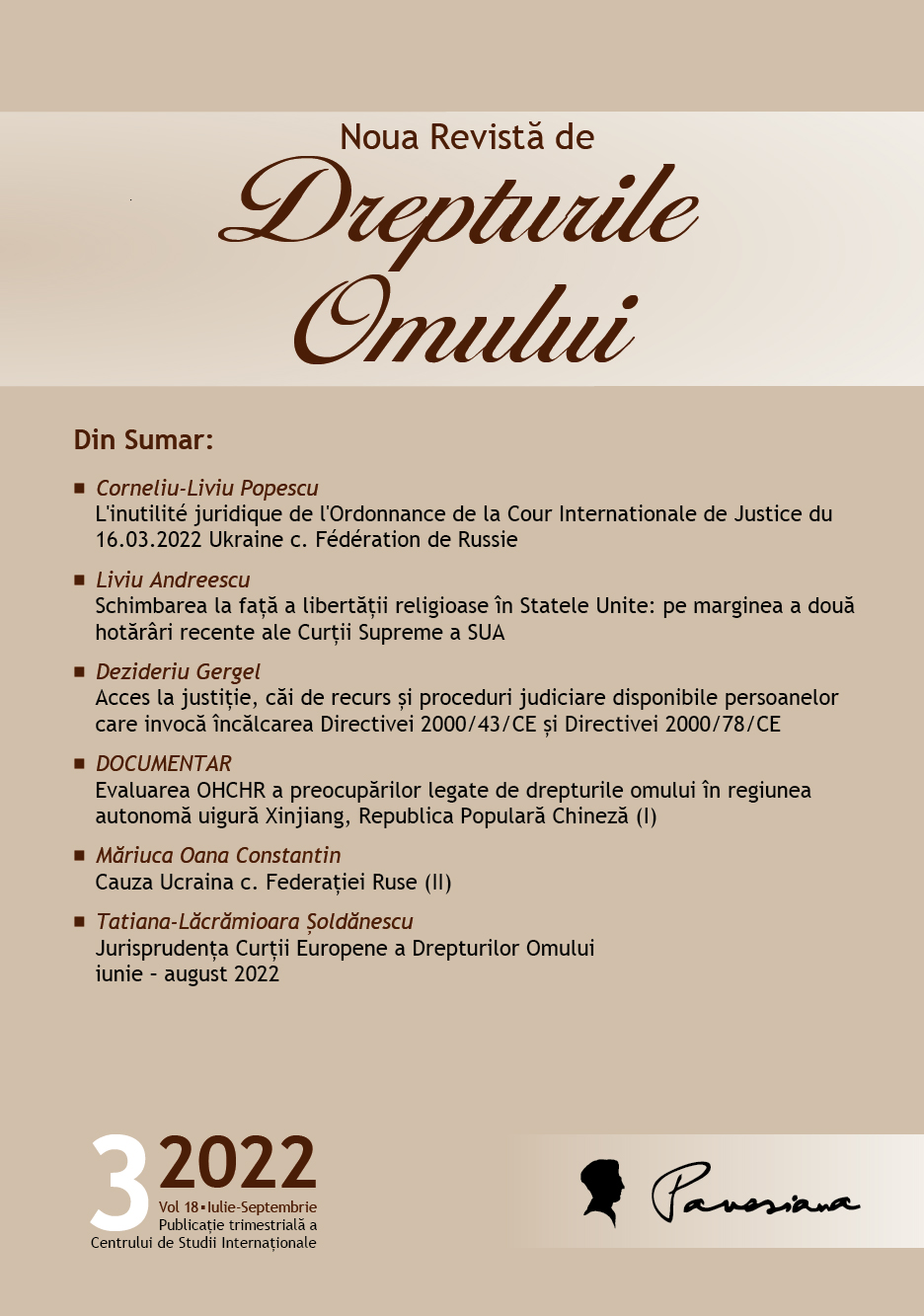Acces la justiție, căi de recurs și proceduri judiciare disponibile persoanelor care invocă încălcarea Directivei 2000/43/CE și Directivei 2000/78/CE: perspective, abordări și interpretări în contenciosul administrativ și constituțional
Access to justice, remedies and procedures available to individuals claiming the infringement of Directive 2000/43/EC and 2000/78/EC: perspectives, approaches and interpretation in administrative and constitutional proceedings
Author(s): Dezideriu GergelySubject(s): International Law, EU-Legislation, Court case
Published by: Centrul de Studii Internationale
Keywords: access to justice; remedies; procedures available to individuals; Directive 2000/43/EC and 2000/78/EC;
Summary/Abstract: In this research we aimed to analyze to what extent the observations of the European Commission regarding the negative impact on the access to justice of groups affected or vulnerable to discrimination in Romania are valid, from the perspective of the implementation of the anti-discrimination Directives. Our hypothesis starts from the premise that the answer must be identified in a set of factors that are related to the legislator’s options in regulating the applicable jurisdictions in the area of non-discrimination, but also in relation to certain factual consequences produced in respect to these jurisdictions. We considered that it is necessary, first of all, to analyze whether the legal provisions regarding the national jurisdictions made available to victims of discrimination in the context of the transposition of the Directives are accessible, precise and predictable. Second, whether the data on complaints and legal actions regarding discrimination fall within or outside the scope of the antidiscrimination Directives and the European Commission’s observations. Thirdly, if a relative distinction is needed between victims of discrimination who have turned to justice, being likely able to formulate legal actions or at least possessing information, knowledge and means for such a recourse and victims of discrimination belonging to vulnerable or marginalized groups, to which the European Commission refers in its evaluation report on the state of implementation of the EU Directives.
Journal: Noua Revistă de Drepturile Omului
- Issue Year: 18/2022
- Issue No: 3
- Page Range: 43-72
- Page Count: 30
- Language: Romanian

